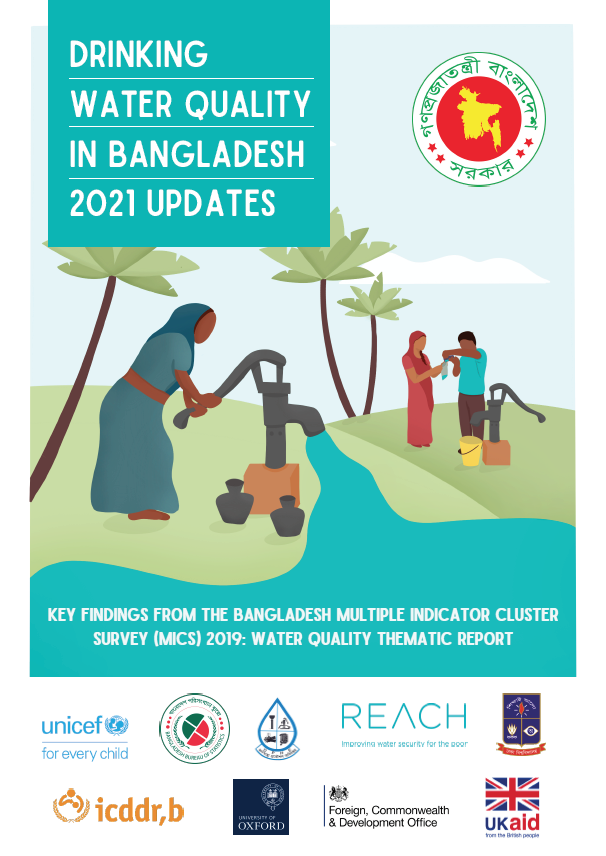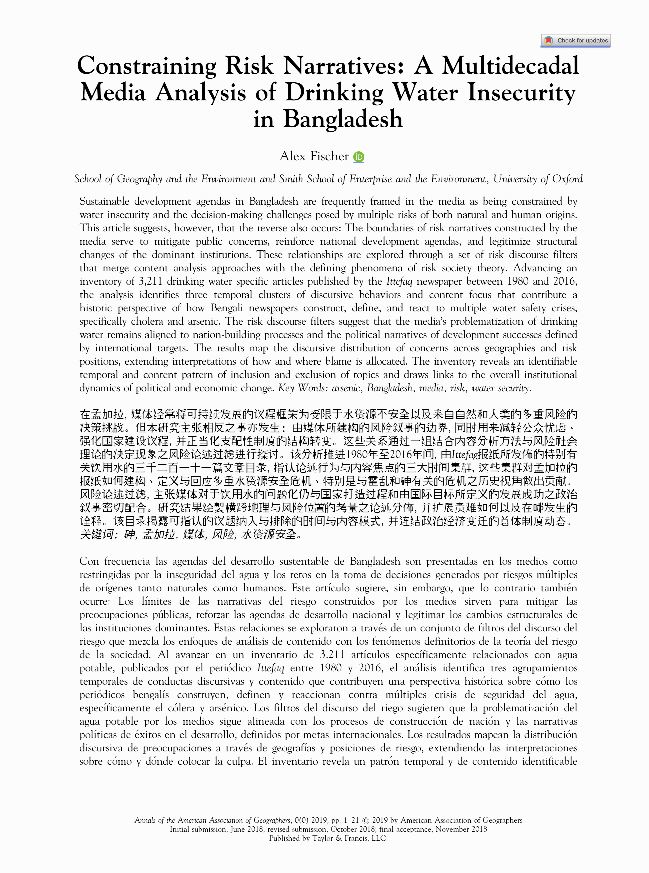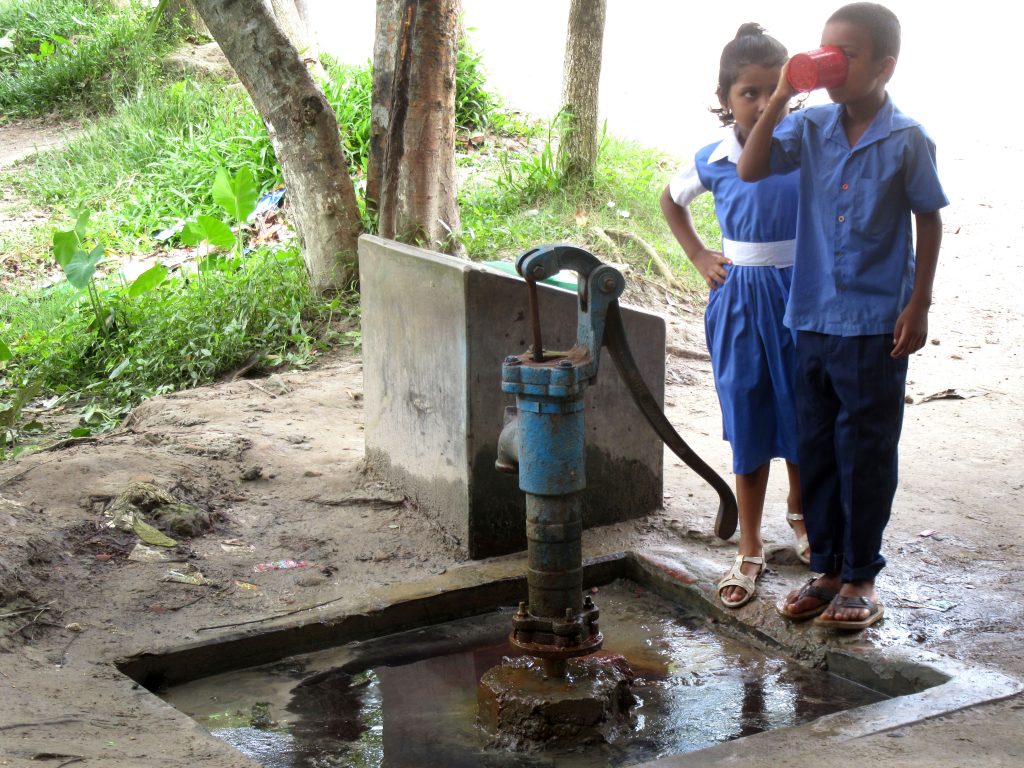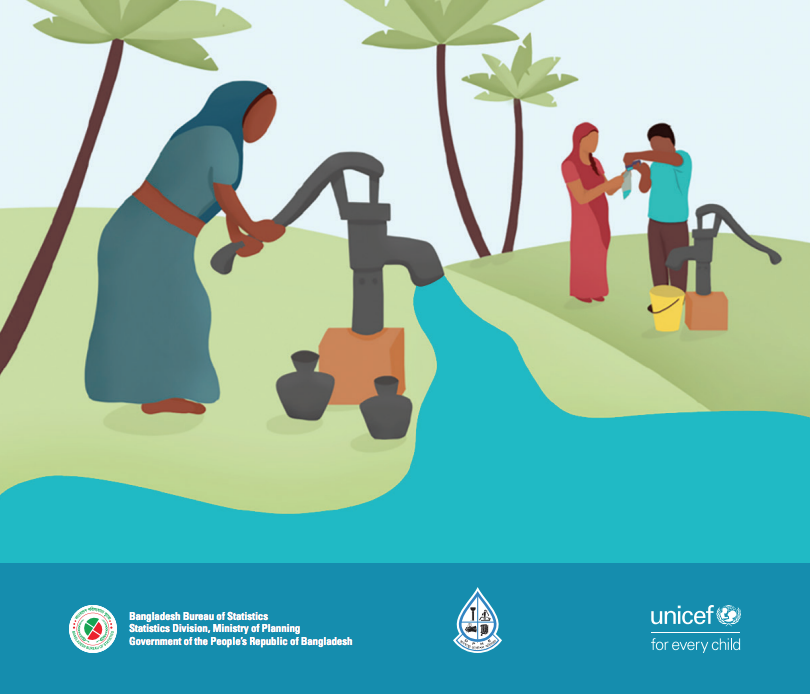
Improving water security for the poor

Summary:
• REACH research has demonstrated how a systematic gap between engineering and
hygiene considerations in the water sector is reducing access to safe drinking water.
• Water user behaviour impacts the hygiene of water collection points and can thereby impact water quality. Previously the focus has been solely on household hygiene.
• Current estimates indicate that between two and four billion people lack access to drinking water that is free from faecal contamination. Evidence from Bangladesh suggests that regular cleaning of water point spouts and taps could substantially reduce this figure, even halving the number of contaminated handpumps.
• Based on this evidence, new WHO guidance on Sanitary Inspections includes cleaning of handpump spouts for the first time. Routine cleaning of taps and other collection points is now part of the recommended operation and maintenance actions for safe water supply.
• The evidence has also informed changes in the monitoring design of large campaigns
to understand drinking water service levels, including the 2024 rounds of UNICEF’s Multiple Indicator Cluster Surveys in South Sudan and Bangladesh.




